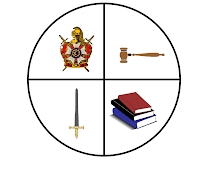Not many people have friends that are scattered around the world. I do! And, they haven't come from my "social web" experiences. I have had the privilege of traveling and meeting people throughout the USA and Africa.
But, now, with the social web explosion, students and educators have the opportunity to collaborate and "meet" people from across the globe. The implication of learning in isolation is shifting even beyond learning within small groups to the possibility of learning in small groups that have members scattered throughout our world.
Twitter, Diigo and del.icio.us are social web features that permit the quick sharing of everything from comments to whole folders of archived websites on a particular topic. I will highlight one point that I like about Diigo:
1. The whole class sets up an account and password and then they save links relevant to the topic of study (this would have come in handy about a month ago when my students were doing research on Friction).
LibraryThing.com or Shelfari.com "allow you to create an online catalog of all of the books in your physical library, and then you can add notes, descriptions, and, of course, tags that describe what they are about. The best part is, however, that you and your students can then connect with everyone else. . ." I am hoping to significantly increase my classroom library with biographies, autobiographies, novels, etc. that have direct or indirect connections to science. I like the idea of students being able engage other people who are reading the same books.
Saturday, May 23, 2009
Subscribe to:
Post Comments (Atom)

No comments:
Post a Comment